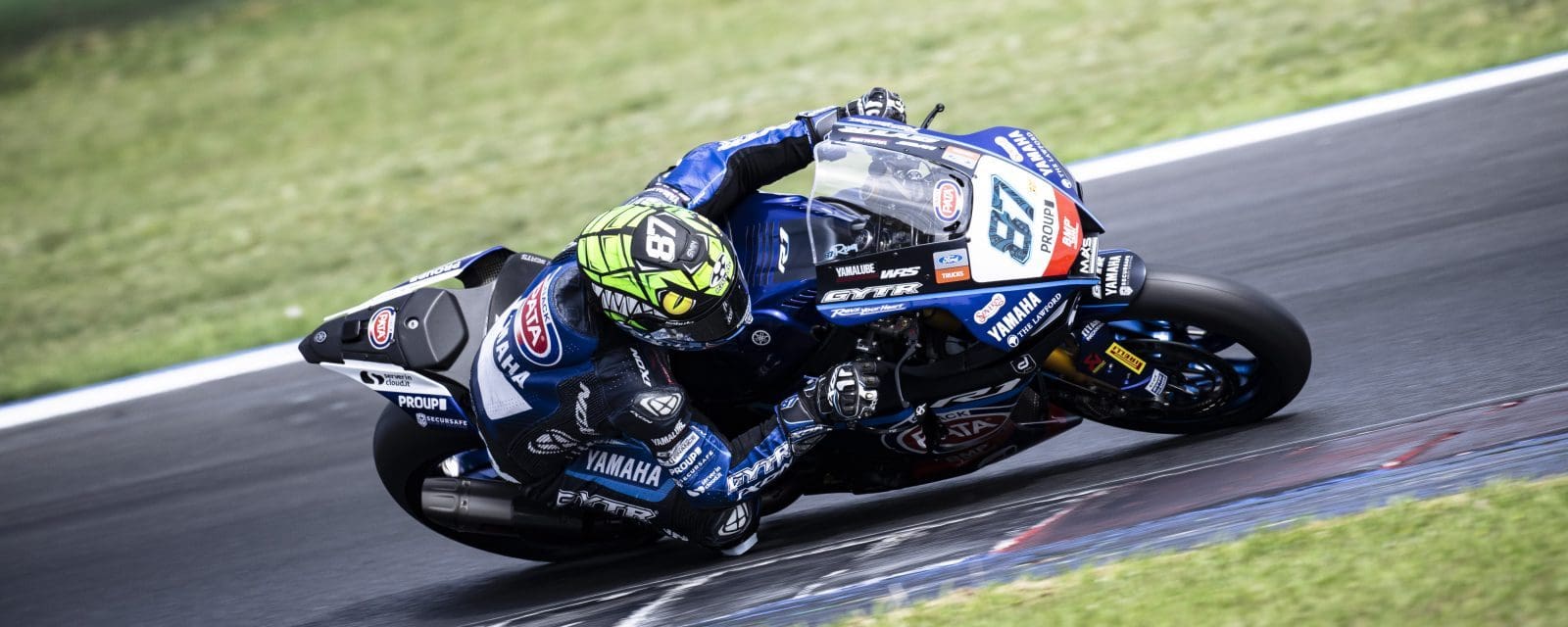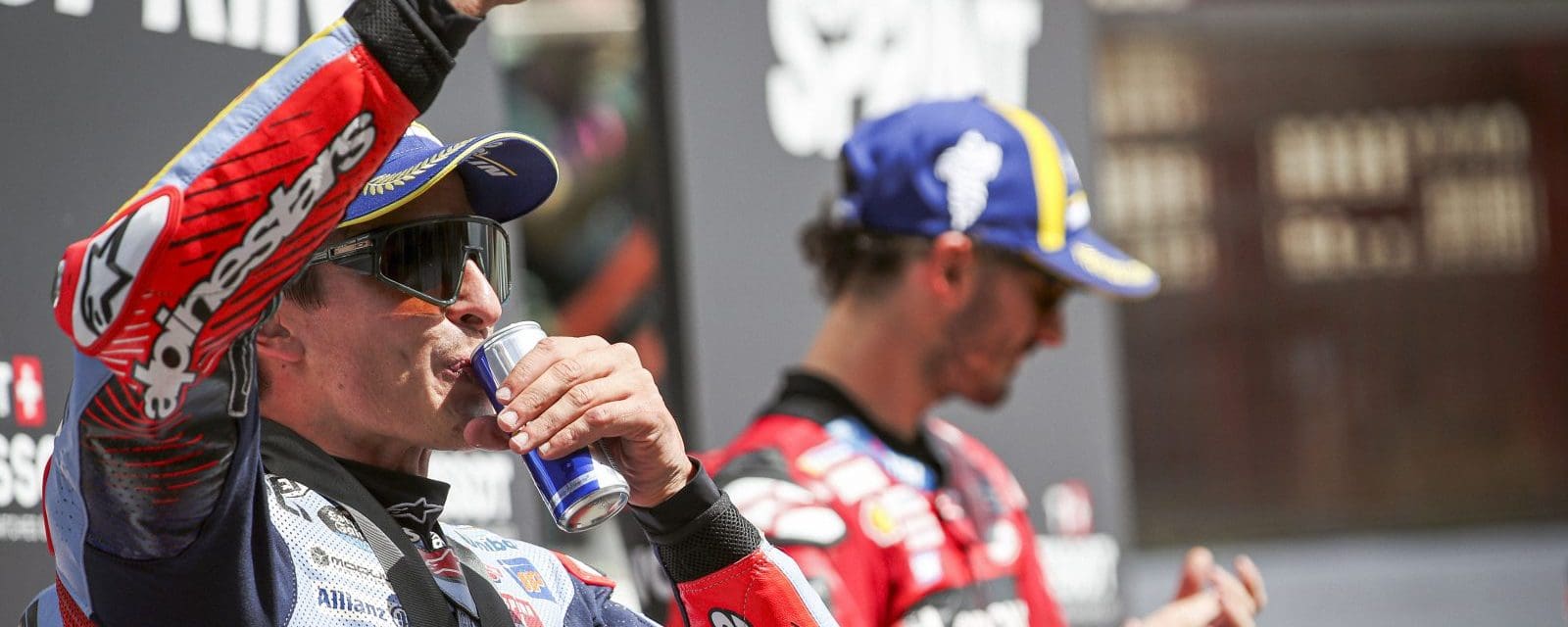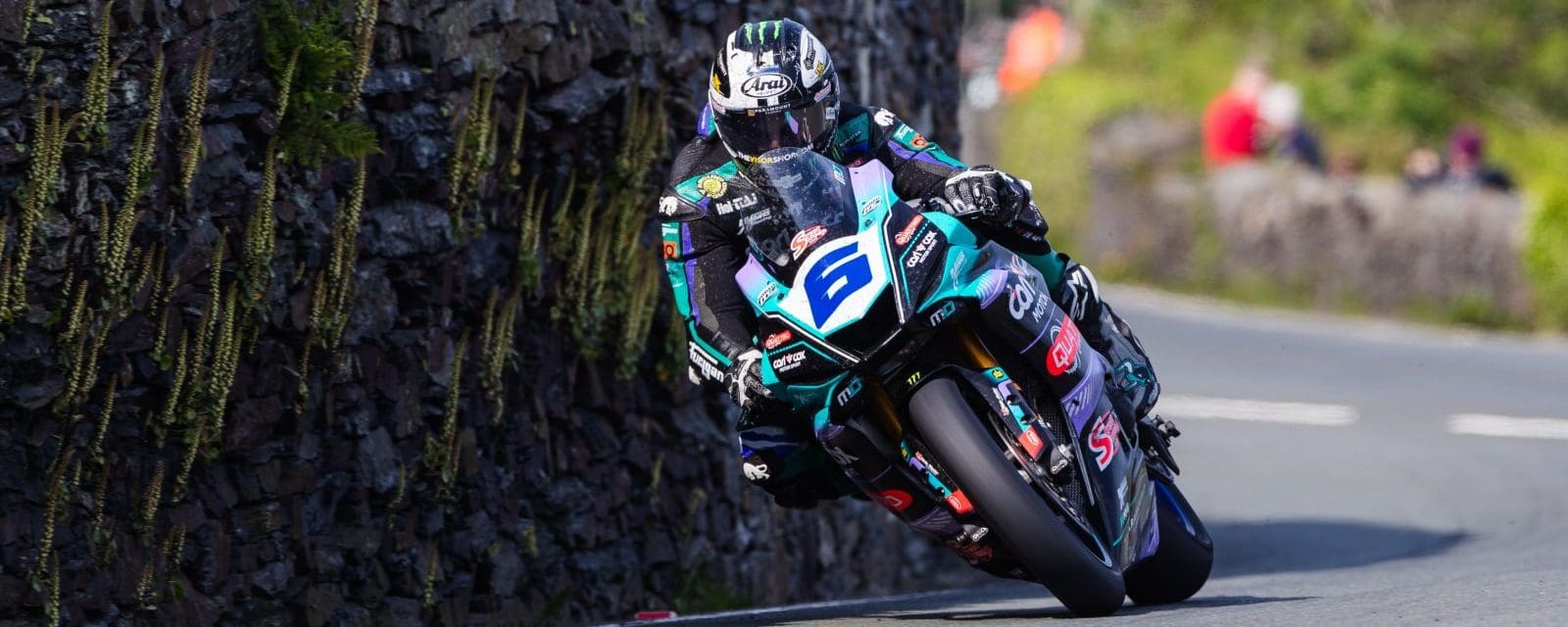It was a busy day on the Salar de Uyuni on the final day of Cook’s Top Oil Land Speed Shootout in Bolivia, and while the Top 1 Oil Ack Attack suffered continued misfortune, competitors Ralph Hudson and Erin Sills made their marks in the FIM World Records with new speeds. Ralph Hudson’s quest for 300 mph continues, as he only barely bumped the bar higher for the third day in a row, ending his bid in Bolivia at 297 mph. Erin Sills was overcome with emotion after reaching her goal of upping her late husband’s FIM World Record in a heartfelt feat in the naturally aspirated partially streamlined division.
Ralph Hudson succeeded in making his first one-way pass of over 300 mph, with a speed of 304 mph—the highest-ever recorded by a sit-on motorcycle (partially streamlined) at an FIM event—but he couldn’t quite back it up with another strong pass to claim an FIM World Record of over 300 mph. His new record of 297 mph is bittersweet, as he feels he is leaving a lot on the table in Bolivia.
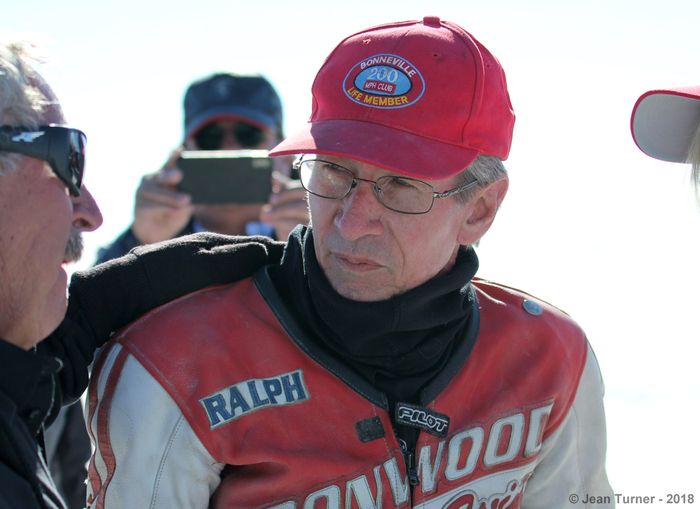
“I think I made 10 runs over the three days and I think that only one was over 300,” said Ralph Hudson. “It was a 308 mph (495 km/h) entry and a 304 (489 km/h) average for the mile. But then I started looking at the data and figured out that I had gone over 300 on two other runs, but I had peaked early and the bike slows down as it gets warm. My second-to-last run was a 299, so we moved forward a little bit [up the track toward the timed mile], and I still peaked early. So on the last run I had moved up to just three miles [from the timed mile] and I blew something, either broke a valve or a piston. We took the spark plug out and it’s all beat-up so I know it’s bad. So my week was over.”
Hudson had a couple of wild rides through the timed mile due to some wheel-spin and wind conditions. On one pass he hit a rubber cone, and on another pass he hit a mile marker, taking out the speed sensor in the process. Fortunately Hudson managed to keep it on two wheels and record speeds in the process.
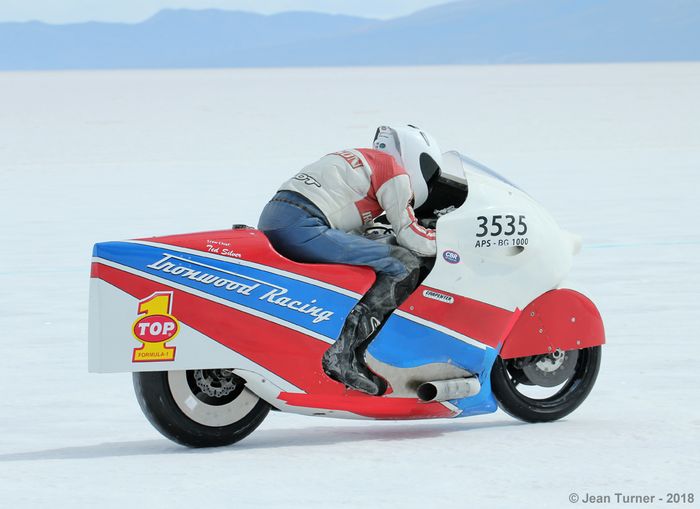
“I felt like I was in a rodeo or something,” Hudson said. “I was trying to keep the bike straight and it would go sideways. I ran into a mile marker. But the end of the timed mile and I was just not going to let off the throttle before the light [laughs]. There was a lot of wheel-spin in that run and when we stopped we found that the wind had changed from a direct headwind to a 45-degree wind from the front. I’ll blame that.”
Hudson received a lot of congratulations from his friends and fans, but according to him, it doesn’t count until it’s in the FIM World Record books.
“It’s great to have gone 300 and to have it officially recognized, but I didn’t do two runs with an average over 300 and get an FIM World Record. To know that I have a bike that was capable of doing that but not putting the two runs together is very disappointing. You know, you set your goals and it’s disappointing if you don’t reach them. I think it would have been easy if the track had been dry. Last year the track was like white asphalt. I did a run at 289 and it was just so easy. It was just like riding to the store. And then some of these runs were really, really difficult.”
Hudson wasn’t the only one to experience difficulties. The Top 1 Oil Ack Attack dealt with fueling issues all day long, and made several aborted attempts to make a pass, but unfortunately had to call it a day. They will leave Bolivia without having made a single trip through the timed mile.
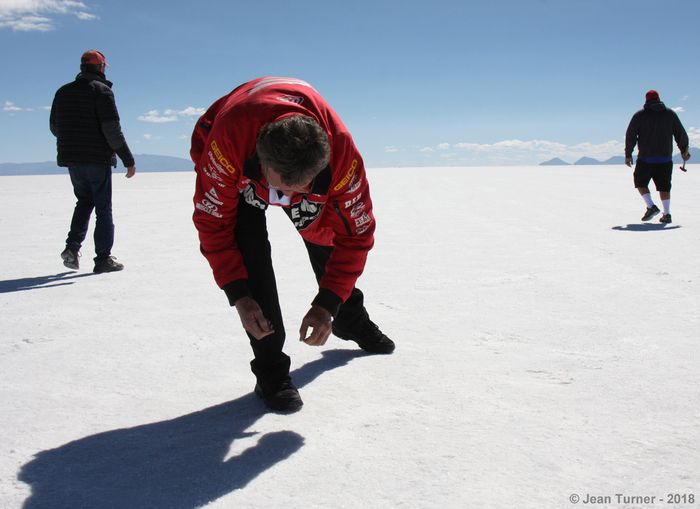
“We had a pretty bad day, all in all,” said Ack Attack owner and builder Mike Akatiff. “We finally got things pretty much in order, but we just couldn’t make the bike run. We had a fellow that was supposed to really know Motec systems. I hired him to do some adjustments [before the Bolivia meet]. The bike ran really well last year, but the bike just absolutely would not run today. It was so rich. It burned four gallons of fuel to warm the motors up.
“I went back and put the other maps in that we ran last year, but we just couldn’t make this thing run again. We used to be able to watch the mixture on the Motec and unfortunately the data coming in got moved and it wasn’t going into where it used to go on our old system. It just… there was nothing we could do. So we decided we gotta head out and say so long Bolivia, for now, at least.
Akatiff is no stranger to disappointment in land-speed racing efforts, and despite several days of frustration and confusion, he took it all in stride. “I’m not horribly discouraged. It’s just part of this game,” said Akatiff. “Live and learn. If you got a bike or something that’s running well, just leave it alone. It bit us hard this year. It was a lot of fun anyway, it was an adventure. Maybe it’ll happen again, maybe it won’t. We’ll just have to see what happens down the road.”
Erin Sills and her Top 1 Oil Hunter Sills Racing/San Diego BMW Motorcycles/Sena-backed team finished their tumultuous event on a high note, claiming a new record in the naturally aspirated partially streamlined class aboard a nitrous-powered BMW S 1000 RR. Sills came to Bolivia with a goal of upping the existing FIM World Record of her late husband Andy Sills. Erin was overcome with emotion upon hearing her best-ever time of 237 mph in a one-way pass, and went on to claim a new record of 229 mph, placing name once again next to her late husband’s in the FIM World Record books.
For everyone at the meet, including event promoter Mike Cook, it was a heartfelt success, and one that added to a week full of unexpected twists. “Well, it was an exciting week,” said Cook. “We wanted a little bit more, but typical racer, you always want more. But we ended up getting the first sit-down motorcycle to go 300 miles an hour, which was a major accomplishment. Mike Akatiff, they fought that thing all week and God bless him for it. And then Erin Sills got a record on her bike as well.
“It’s been a great event so far, I think. FIM was out here so everything is official.
We got nothing but positive feedback from everybody regarding the event. I think some of them might even want to come back to Bolivia again. But I don’t know about that. We’ll see what happens.”
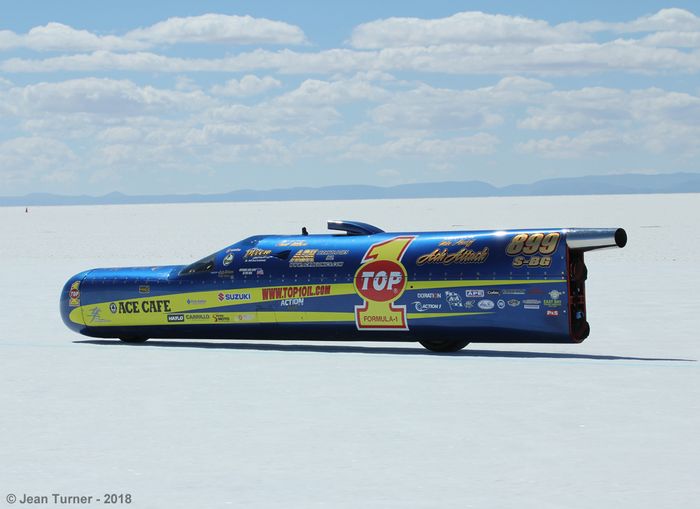
By Jean Turner





